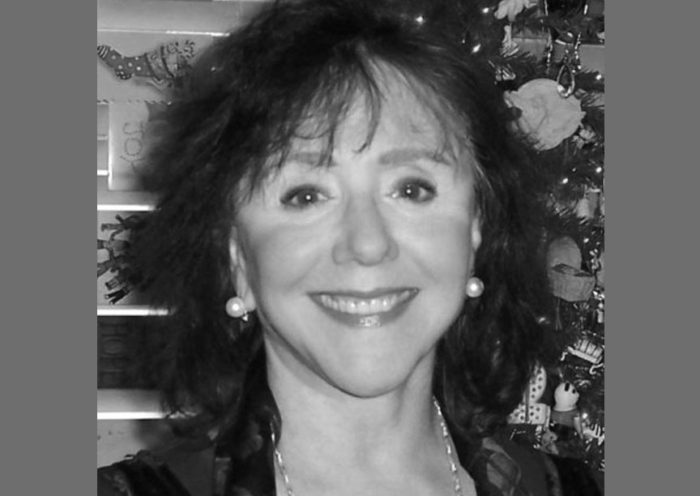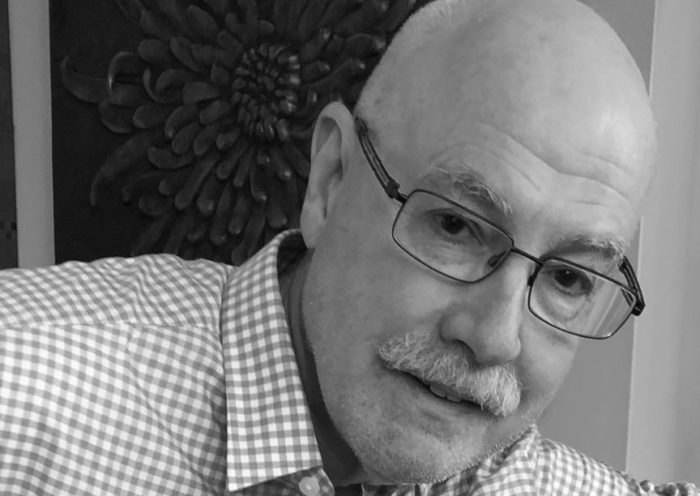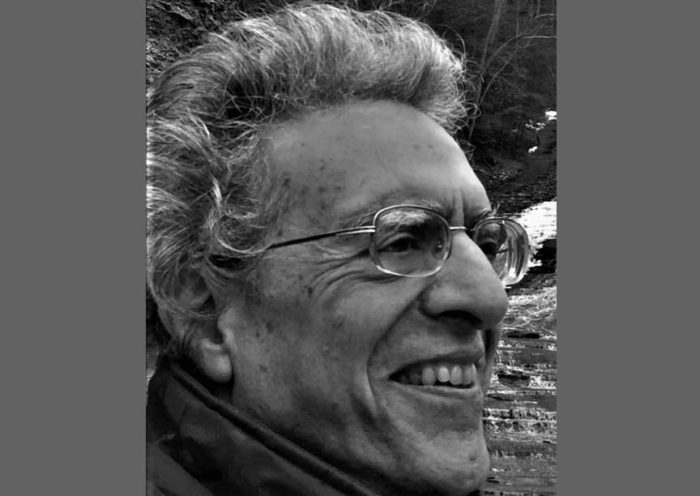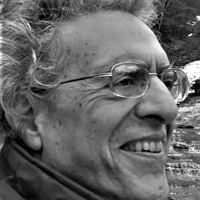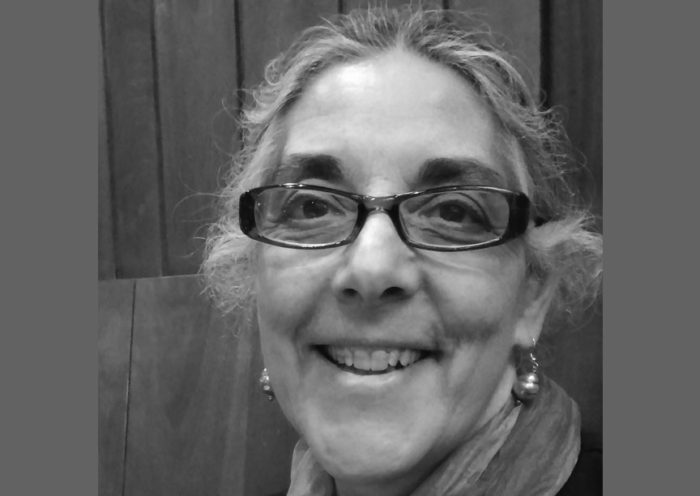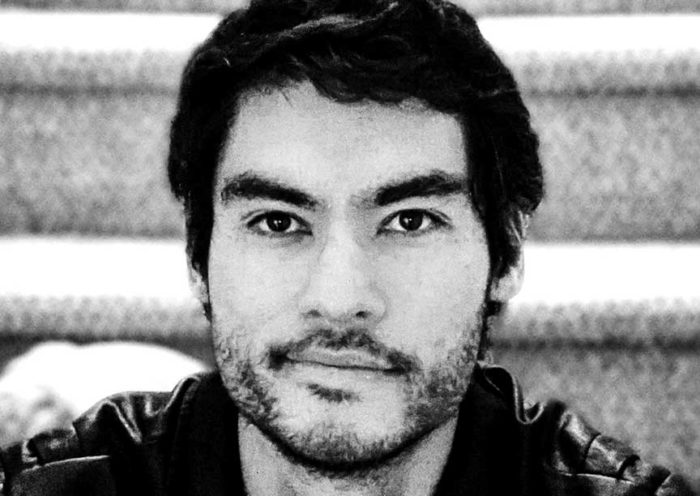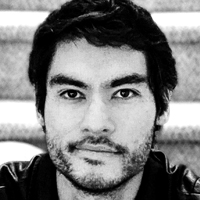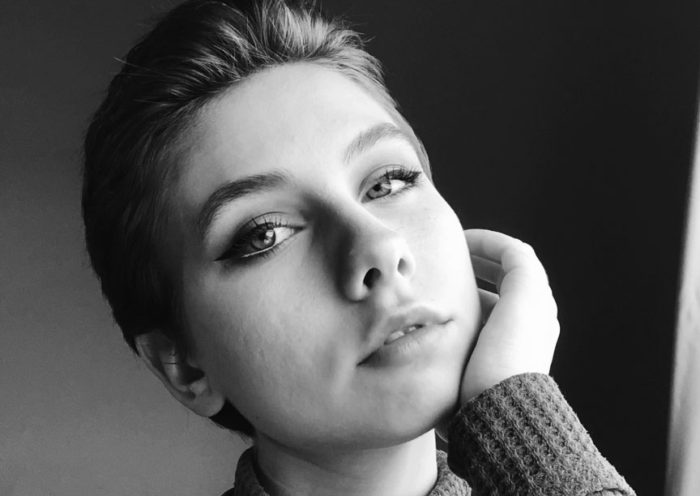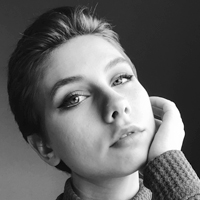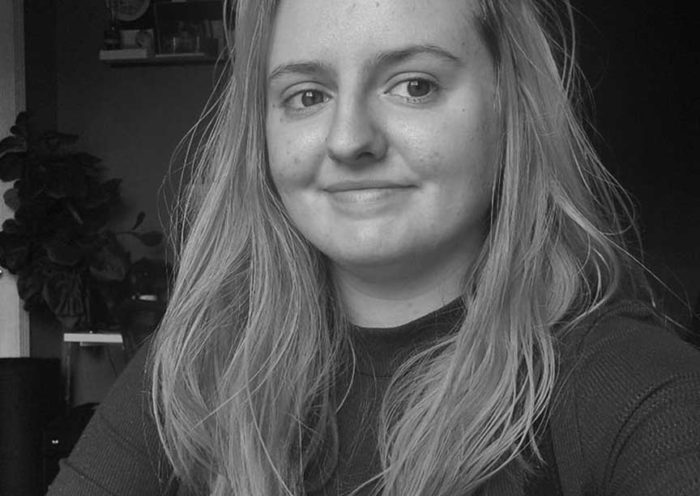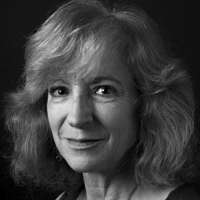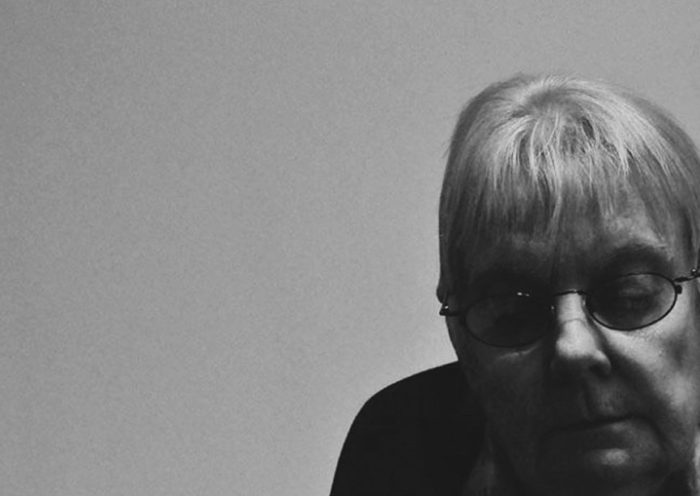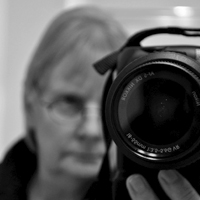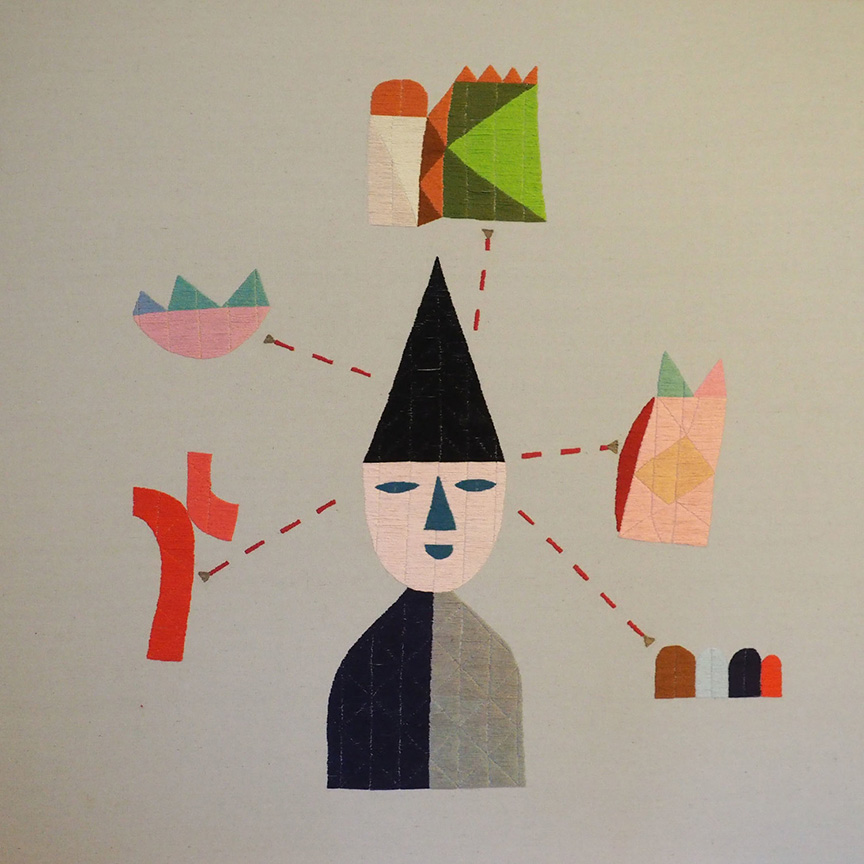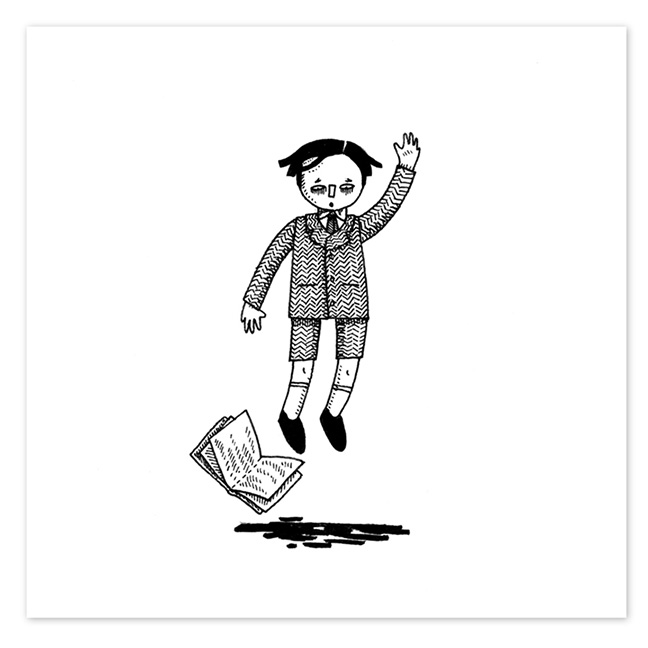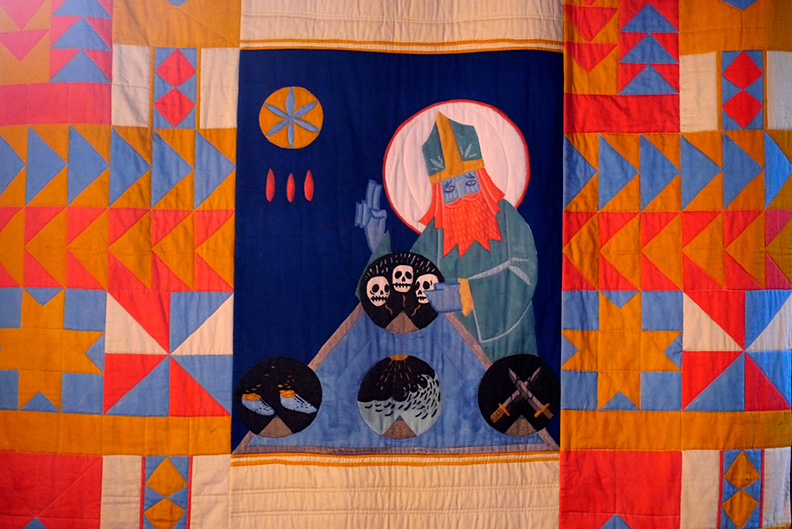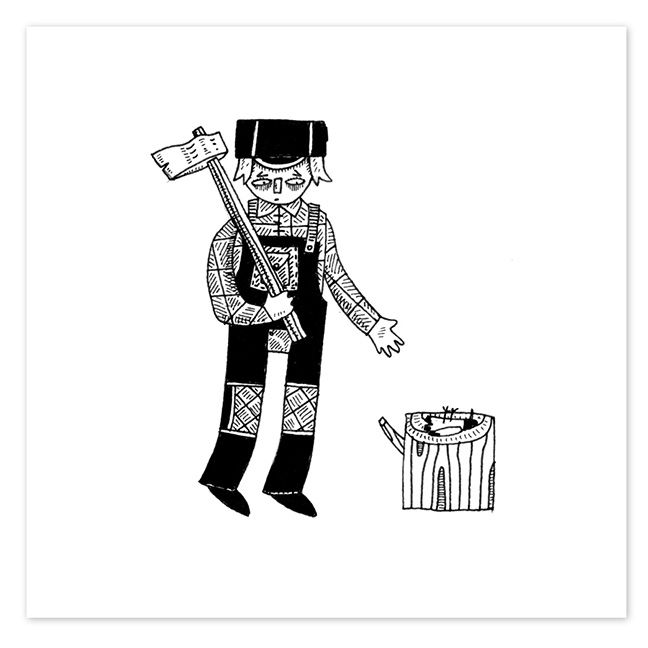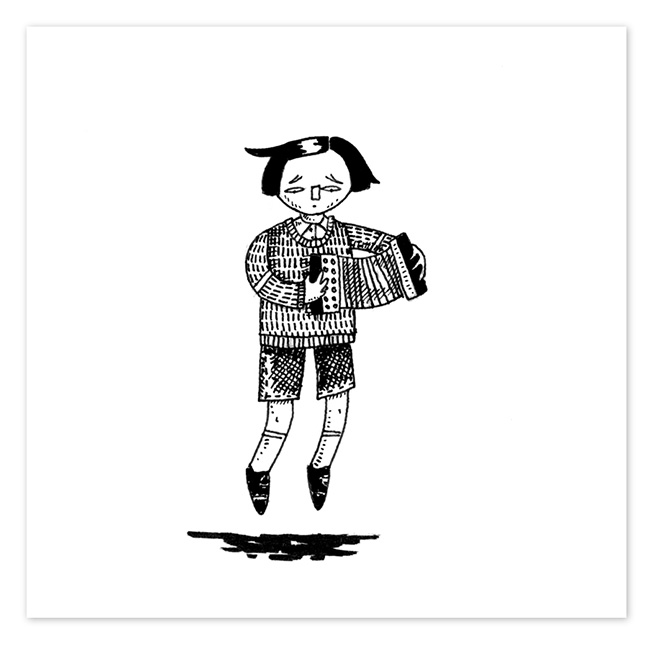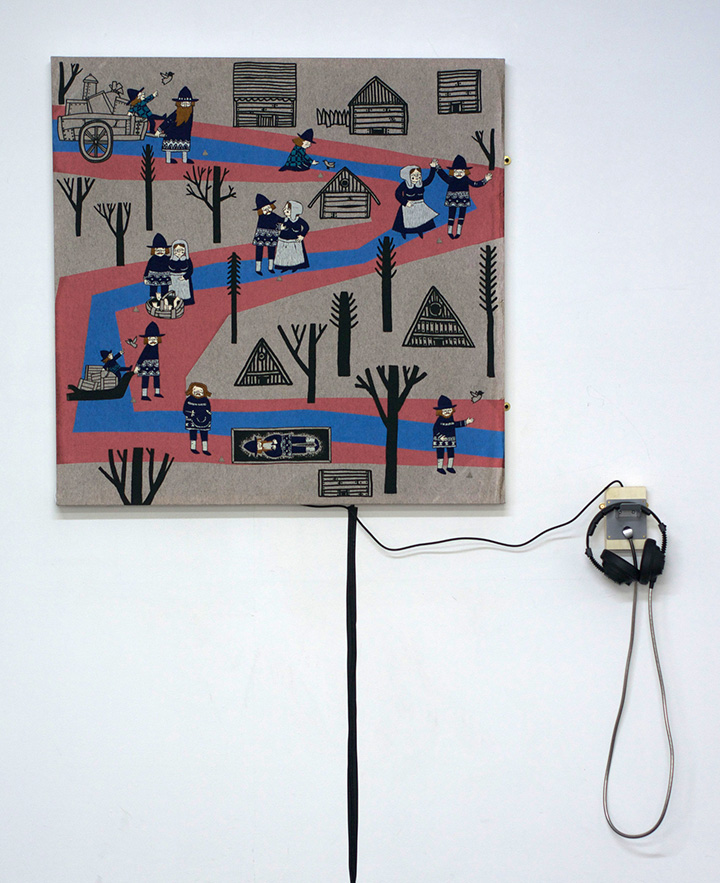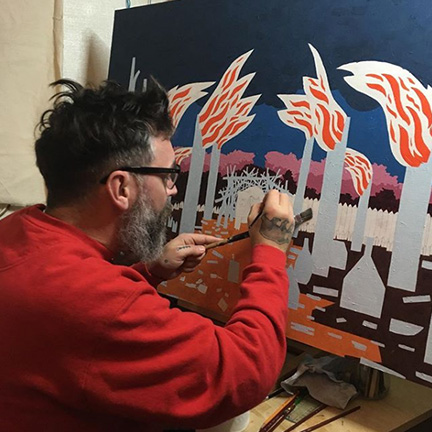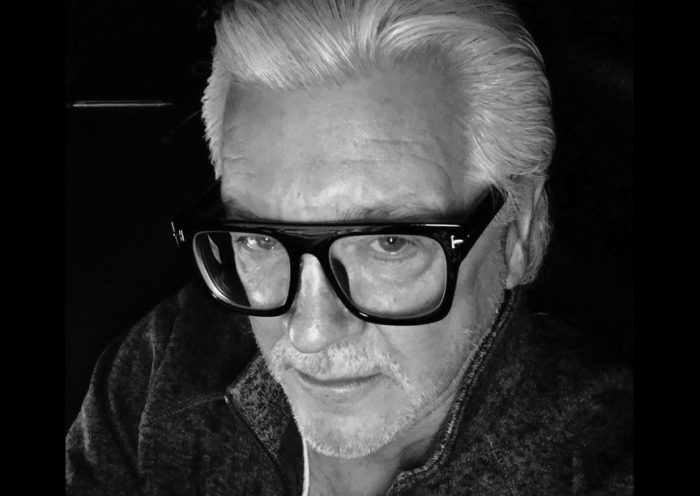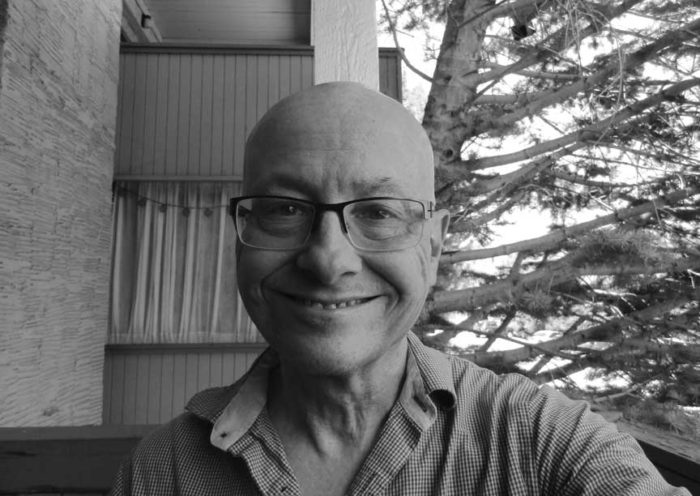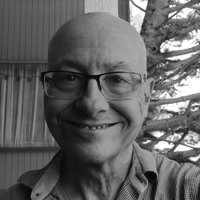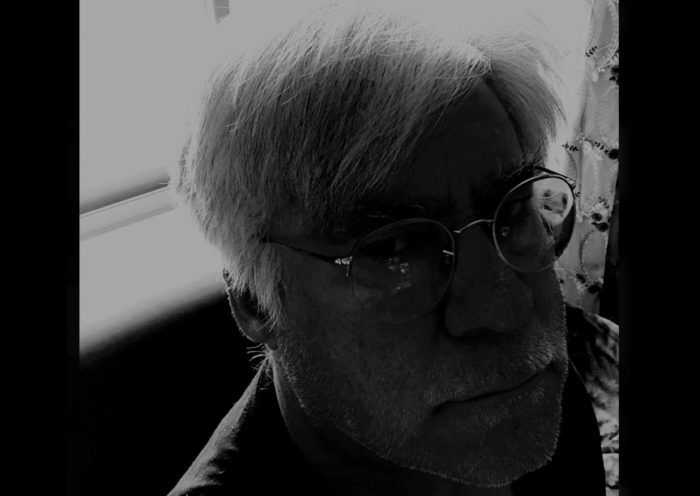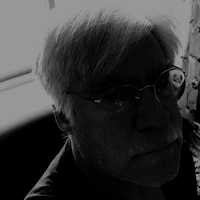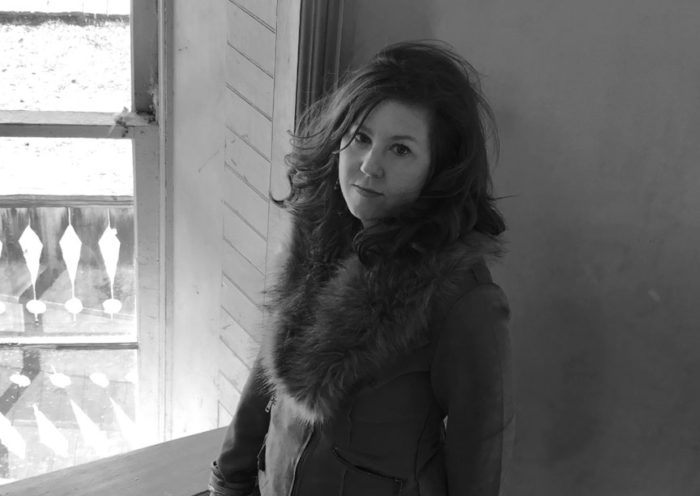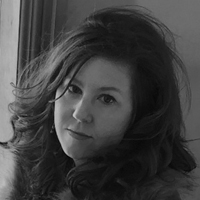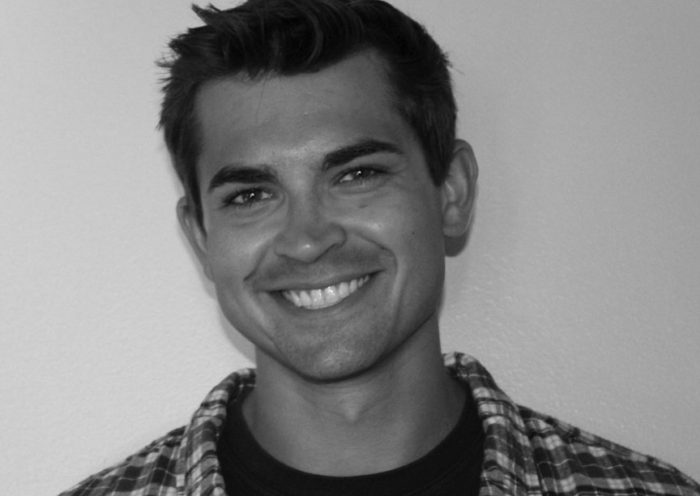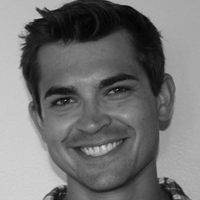Boxes
by Alison Bullock
It all started because of an uncooperative carburetor. Either it wasn’t firing or it was firing too often, one of the two, and so Etta’s husband Albert told her to bring their old Dodge Dart down to Iron Joe’s garage. Iron Joe’s was on the far side of town, but Albert knew the owner and insisted the guy would give them a fair shake. Normally, he’d have been skeptical about letting his wife handle an errand so mechanical in nature, but it was tax season and he just couldn’t do it himself. Though it was in a run-down, unfamiliar part of town, Etta reluctantly agreed to take the car over.
She took the car
sputtering and backfiring all the way down Central, and following her
meticulous notes, turned left on Depot and right on Willard. She passed a
dilapidated newsstand, (the kind that sells magazines of questionable taste),
and prayed that the engine would hold out. By the time she rolled into
Iron Joe’s parking lot, the car was coughing up plumes of black smoke.
She could just picture Albert’s reaction if he’d known. “Why the hell didn’t
you have it towed there if things got that bad?” he’d say, making her feel
incompetent and silly. Etta had never been good at deciphering when something
had crossed a line to being “that bad.”
The mechanic on duty was kind. He didn’t mention the billowing smoke at all. Just told her that it’d be a few hours, and asked her if she planned on staying.
“Well, yes,” Etta said. It hadn’t occurred to her to make
alternative arrangements. She asked the way to the waiting room, which
turned out to be a single folding chair near the register, sandwiched tightly
between the cigarette machine and gum. Etta found the arrangement to be
perfectly suitable, as long as she kept her elbows tucked in tight.
For the first hour she
kept herself busy by looking through her accordion-style coupon case. She tsked
when she saw that her 25-center on Hamburger Helper had just expired. At
ShopRite, where they tripled your coupons, she could have gotten some
practically for free. Ahh well, she thought. Another
opportunity lost.
She moved on to
organize her wallet, smoothing a wad of crumpled bills on her lap. George
Washington stared up at her. Something about him seemed familiar.
It was only after close inspection that Etta realized how much he resembled an
old boyfriend she’d had back when she was a teenager. Of course their
hairstyles were nothing alike, but their mouths were nearly identical. The
thought of Robby Wilding made Etta sigh. Robby was the smartest boy in
her English class—sensitive and kind. A boy who’d been so enamored with Etta,
that when she was around him, she felt like an altogether different sort of a
person. One night on the phone, he confessed to having had a crush on Etta the
very first day he laid eyes on her. He’d seen her from afar, but had
known instantly. “What was I doing?”Etta asked, breathlessly. “Who was
I with?” Robby couldn’t provide that level of detail. He did remember
sneaking over to her house that very night and carving his initials onto a
painted, antique milk can in her front yard. “That very first night?”
she’d asked, nearly frantic with glee. She’d always considered herself somewhat
plain, certainly not the type who normally drew that kind of attention. The
very prospect thrilled her. She’d hurried to hang up the phone, and raced
outside to find the milk can. There it sat in a sprawling patch of
Black-eyed Susans. Searching everywhere, Etta finally found his hastily scrawled
RW near the base. She traced the prickly lines with her fingers.
Etched in paint, and filled with teenage angst, it had been her first and only
love letter.
As it turned out, she and Robby only dated for a few months before his family moved away to Montana. The can, however, still remained in Etta’s possession even to this day. She planted her geraniums in it every summer. At first it had seemed disloyal to keep it, back in the days when she and Albert were first married, but now she was glad that she had. The can reminded her that she’d once been desirable, if only to a seventeen-year-old boy, who surely hadn’t known any better. A boy, Etta shuddered to think, who would be turning sixty any day now.
Sixty. Etta couldn’t believe it. She sighed and looked down into her lap. The bills she’d been holding had fallen into disarray. She hurried to shuffle them together, making sure to arrange them by descending denomination before slipping them back into the billfold of her wallet. She checked her watch. Her wait was not even half over. Exhaling loudly, she rose from her chair, and purchased a package of peanut butter crackers.
“I think I’ll go for a walk,” she told the cashier, who only
stared back blankly at her. She seemed to evoke that response a lot from
people—something that could be described as mild indifference.
A quick right out of
the parking lot led her to a string of tired looking shops with faded awnings. The
first one had a sign that read Posner’s Engraver’s. Etta stood
nibbling on her crackers while she contemplated the phrasing. Something
didn’t seem quite right. The two possessives seemed to pose a grammatical
problem. The mistake did not bode well for management. Next, she
passed a store called Trinkets and Treasures. It was a strange
little hodgepodge of a place. A sterling silver tea service sat on a
shelf alongside a shiny purple bowling ball. Etta thought of going in,
maybe browsing a little; she did have a weakness for bric-a-brac, but in the
end she decided against it. Dusting already took up most of her Thursdays,
she reasoned, and moved on. She was nearing the end of the block and about to
turn back when she saw a sign posted on the door of a seemingly vacant
storefront.
Invitation to Life Seminar – Free- All Are Welcome
Etta’s interest was piqued. She liked the idea of a seminar; the word itself thrilled her, sounding as important as a caucus or a summit. Suddenly Etta imagined herself as less of a disgruntled housewife, and more of a diplomat. And wasn’t that just what she needed too? An invitation to get started on her life, instead of just simply waiting around for something to happen? Imagine Albert’s reaction, she thought, when he asked her about her day over dinner that night.He’d be expecting some boring story about a 2 for 1 sale over at Shoprite, when she’d let it slip about the fascinating seminar she’d attended, and watch his jaw drop. The very image of Albert’s stunned expression was so pleasing that it made Etta stop and rest one hand on the door knob. But what if it’s some kind of trap? she worried, picturing herself being bound and gagged by a group of religious zealots. Oh, but a seminar, she countered, and in a moment of unprecedented bravery, she went in.
A series of cardboard arrows led Etta down a narrow stairway and around several corners until she finally reached a basement clearing. For a long moment, she hung back, silently observing. The drop ceiling had several tiles missing, and along the far side of the wall were stacks of unused, dusty chairs. A portly, red-haired woman stood at the front of the room next to a faded green chalkboard. The woman, who was clearly the teacher, was dressed in a floral caftan, the kind of garment sold at discount stores for larger women. Her wide feet spilled out over the edges of her embroidered velvet slippers, and her hands, which she gestured with frequently, were covered with yellow chalk dust. Occasionally, the teacher bent down to glance at her written materials, which she kept stacked atop an old wooden crate. The informal set up came as a disappointment to Etta, who had been hoping that her invitation to life might include a podium.
Though the room was nothing fancy, the teacher seemed to hold the undivided attention of her pupils, who sat in a single row of chairs with wrap-around desks. There were three students all together: a grey haired man with a cane resting against one knee, a young woman with a baby in one of those portable car seats at her feet, and an enormously tall man, whose legs were so long, that he needed to keep them extended out in front of him, in order to keep his knees from hitting the desktop. As the instructor turned to write something on the board, she looked over to see Etta waiting in the wings.
“Excellent! Another student,” she trilled, motioning for
Etta to take a seat next to the young mother, right in the center of the front
row.
Etta paused. Center seat of the front row seemed like an
awfully big commitment, but yet leaving now, after she had already been spotted
would be even more unthinkable. Etta silently slipped into her chair
while the class made a series of brief introductions. The young mother’s name
was Jennifer, and she gave Etta a small smile while absentmindedly shaking a
rattle in her baby’s direction, the tall man’s name was William, he had a
distinguished air about him, and the old man’s name was Barney.
“I’m going to ask you a question,” the teacher, who had introduced
herself as Miss Marjorie, said. She was handing out squares of paper and
pre-sharpened golf pencils.
“You’ll have five seconds to record your answers, and I give you my solemn word that your answers will remain completely anonymous.” Miss Marjorie emphasized this point by putting one hand up in a scout’s honor position before using the other to turn an imaginary key before her tightly sealed lips.
“Write the first thing that comes to mind. Ready?”
Etta grabbed her pencil and watched it quivering as it hovered over
the page.
“If you could change one thing about your life, what would it be?” Miss Marjorie prompted. “GO!”
Etta’s pencil started
moving spontaneously, as though it had a mind of its own. Milliseconds
later, she was flipping the paper over. On the underside, in large
looping letters, she had written the word MARRIAGE. The answer
had surprised even Etta herself. It wasn’t as though the union were a
blatant failure; she and Albert weren’t bickerers and he’d certainly never laid
a hand on her. Until now, she might have described the relationship as
mildly disappointing.
“TIME!” Miss Marjorie screeched, and she scurried to collect the slips in a paper sack. Etta wasn’t certain she felt comfortable turning her innermost thoughts over to a complete stranger. “Come on now,” Miss Marjorie goaded, clearly picking up on her reticence. “Privacy killed the cat.”
Etta was fairly sure that it was curiosity that had led to the cat’s demise, but maybe her instructor was making a point. Maybe an inordinate need for privacy could be equally toxic given the right circumstances. In fact maybe Miss Marjorie, in her Walmart housecoat and Payless slippers, had gotten to the very root of Etta’s problem. Maybe she was too self-contained. Etta glanced sideways at Jennifer, the young mother next to her, who virtually popped her paper into the bag, seemingly without a second thought. How nice to be so implicitly trusting of the world. Etta imagined Jennifer living a joyous and carefree life, listing her full name in the phonebook, and picking up random hitchhikers on a passing whim. Tentatively, Etta added her own carefully folded square to the paper sack.
Miss Marjorie read the slips to herself. “Well, that’s never happened before,” she mumbled. Etta and a few of the others cocked their heads in question. “You all wrote down the same thing,” she explained bluntly. So much for Miss Marjorie’s pledge of anonymity.
Etta felt the blood rush to her head. Miss Marjorie said not to worry, that this only meant that she could tailor the class to meet their needs very specifically. Apparently the lecture hadn’t been planned beforehand. Etta considered this cause for suspicion and was glad when William, the tall man, inquired what Miss Marjorie’s qualifications were to offer marriage advice.
“I am a seasoned actress William,” she answered. “I deal in
the human condition, which means that I understand people… their frailties…what
makes them tick.” After a few seconds of uncomfortable silence Miss Marjorie lifted
a finger and added, “Once a man with a loaded gun broke into my home
with the full intention of murdering me. Instead I made him a scrambled egg and
convinced him to turn himself in to the police.” After another dramatic
pause she said, “I know how to connect with people. I can teach you how to
connect with your spouse again.”
Miss Marjorie turned away from them then, as though the matter were closed for discussion, and for the next hour she offered some of the most unorthodox advice Etta had ever heard. Their first lesson was on how to laugh at their spouse’s jokes. Laughing at a person’s jokes, her teacher said, was a form of generosity. It created goodwill.
“Now listen carefully, because there’s a right way to do
this.” Miss Marjorie bent down and contorted her face as though
suppressing a laugh. “You see, you haven’t been getting along,
right? So it’s natural that your laugh will not come bellowing
forth. Instead, your laugh will escape from you, as if by
accident.” Miss Marjorie demonstrated. “This kind of unintended
laugh will be very satisfying to your partner.”
Etta raised her hand. “Isn’t this all a little
deceitful? I mean shouldn’t we be working on being honest with each
other, instead of play acting?”
Miss Marjorie gave her a dull stare. “Sometimes, benevolence
is more important than honesty.”
Etta was shocked to learn that Miss Marjorie intended for each of them to get up in front of the class and demonstrate their laughs. They were to stand up in pairs. One of them was to simply utter the phrase, “Duck, Duck, Goose,” to which their partner was instructed to “unleash” their laughter. Jennifer, the young mother, was paired with Barney, the older gentleman, and mercifully, they were asked to go first. Jennifer’s was a giddy, self-conscious laugh that Etta didn’t find at all convincing. Barney’s performance was even worse. Too pronounced, Etta decided. Too obvious.
When it was her turn to stand in front with William, she wanted to bolt from the room, but couldn’t summon her legs to move. Reluctantly she stood up, her palms sweating and her knees shaking wildly. “Duck, Duck, Goose,” she fairly whispered. William looked her right in the eyes. A slow smile crept across his face and he let go a low, rumbling laugh so convincing that Etta began to wonder if there had been something really unique about her Duck, Duck Goose delivery after all. The thought filled her with satisfaction, and without even planning it, she found herself blushing, turning her head away, and giggling shyly in response.
“THAT’S IT!” Miss Marjorie bellowed, pointing her finger in
Etta’s direction. “ERTHA HAS GOT IT DOWN PERFECTLY!”
After such a bold endorsement, Etta didn’t have the heart to tell Miss Marjorie that she’d gotten her name wrong. If she needed to go by Ertha for the remainder of the class, so be it.
Towards the end of the lecture, Miss Marjorie retreated to the back of the room, where she pried open the brass lock of a nearby trunk. Reaching inside, she produced four dusty boxes and set them on the table, informing her students that there were “novelty items” inside.
“Don’t open them up until you get home,” she said. “It will
spoil the mystique.”
The contents of the boxes varied, although she guaranteed that each would provide fodder for their spouse’s jokes. The students were to simply set their new acquisitions on their kitchen tables and wait for a response. Their homework assignment for the week was to perfect their reactions to the jokes, the way they had practiced in class.
Homework? Etta hadn’t realized that the class was ongoing.
“How much?” Barney, the old man, said, pointing at the
box.
“Twenty dollars,” Miss Marjorie said, “I’m selling them to you
practically at cost.” None of the students moved.
Twenty dollars seemed like a lot for a novelty item, especially
one that she wasn’t going to be permitted to see first, but after all, the
seminar had been free.
Etta eyed the boxes with curiosity. The last time she had made a blind purchase like this was as a child, at the Greenville Town Fair from an enormous woman called “Mrs. Pockets.” Mrs. Pockets wore a tent-like gown, not unlike Miss Marjorie’s, except that hers was covered in multi-colored pouches. For a nickel, you could choose any pocket you liked, and the prize within it was yours. Etta remembered how thrilled she had been with her set of wax lips, but equally exciting was the mystery of it all. Mystery was definitely something that was lacking in her life these days.
“I’ll take one,” she said, rising up from her chair.
“Ooh, she’s a brave one,” William crooned, and the rest of the
class nodded approvingly. For the second time that day, Etta felt herself
blush.
She left the seminar with her prize safely tucked under one arm. She had been noncommittal (though secretly pleased) when Miss Marjorie asked if she could expect her “star pupil” the following Wednesday. Apparently, the class was to run for five weeks. Etta was well aware that Miss Marjorie could be some sort of huckster, and yet, a part of her yearned to go back. She had experienced such a range of emotions in the one hour, from fear, to elation, to curiosity. Etta wasn’t accustomed to having so many different feelings piggybacked together like that. Somehow, she felt stretched.
Back at the garage, the mechanic was just finishing up with the car. He warned her about an unrelated problem with the back axle, and recommended that she make an appointment to get it taken care of as soon as possible.
“I’ll tell my husband,” she promised, and hurried out to her
car. She couldn’t wait to get home and open her box.
Once in her kitchen, Etta cast off her coat and immediately began tearing at the cardboard packaging. Inside she found a tightly wrapped ball of tissue paper. Hastily, she peeled off layer after layer, until she finally came to what she was looking for.
It was some sort of strange-looking doll, with unkempt, fluorescent-pink hair and an unfortunate nose. Motion Activated Troll Doll, the package said. Apparently, if you clapped or waved your hand in front of it, the doll would dance and sing. Etta was irritated to find that she couldn’t test this immediately. For twenty dollars, she would have expected the batteries to be included. Judging from the troll’s costume (it was wearing a grass skirt and holding a ukulele) Etta guessed that it would probably be performing something Hawaiian. Nervously, she went to retrieve two AA’s from the hall closet. Suddenly it seemed as though the entire fate of her marriage rested in the hands of a five- inch plastic figurine. She inserted the batteries and listened tentatively while the troll serenaded her with I’ve Got a Lovely Bunch of Coconuts. Was it funny? Etta couldn’t tell.
Albert arrived home late from work that night. Etta busied herself in the kitchen, her laugh at the ready. When Albert tossed his keys onto the table as usual, the troll burst into song, but Albert was already halfway out the door, leafing through a stack of bills as he sauntered away.
“Goddamnit!” he muttered, “The phone company’s overcharged us
again.”
As let down as Etta felt, she still doggedly pursued a reaction. She wedged the troll between the salt and pepper at dinner, and tried stationing it next to Albert’s toothbrush at night. The problem, as Etta saw it, was in how consistently preoccupied Albert was. She’d never noticed how extreme the situation had become. At any given moment, he seemed to be reading a paper, reviewing the bills, or watching television.
After three days without any reaction, Etta was ready to give up, when something happened that she wasn’t expecting. It was Saturday, which was Etta’s laundry day. She had collected Albert’s pile of socks and underwear, and was lifting the lid of the washing machine, when a familiar noise jumped out at her. There at the base of the well was the gyrating troll. How in the world? Etta wondered, and then she realized how, and smiled. And to think he never even gave the slightest indication of noticing the thing.
Finding the troll reminded her of an earlier time, when she and Albert were first dating. They’d played a silly game that involved surprising the other with a rubber cockroach. How the game started, Etta couldn’t recall now, but it had gone much the same way, with one of them hiding the bug and waiting for the other to find it unexpectedly. Albert had been better at the game, as he showed a great deal more restraint. Sometimes he waited months before springing the cockroach on her, and this really led to a much bigger surprise.
One Christmas, at least six months after the last insect sighting, Albert presented her with a small, carefully wrapped package. Inside was the cockroach, which of course made Etta scream and laugh, but underneath it was an engagement ring. Come to think of it, the very presentation had been part of the reason she’d said yes. She’d had fun with Albert. Etta shut the lid of the washing machine, not knowing what surprised her more, the fact that she and Albert used to have fun, or the fact that she’d forgotten. Well I’ll be, she thought, and silently crept downstairs to the garage where she set the troll on top of the lawnmower.
Spurred on by success, Etta decided to return to the seminar the following Wednesday. Albert wanted the back axle repaired anyway, and what with Iron Joe’s opening on Wednesday, it only made sense to take it then. An excited Etta dropped off the car, nearly skipping all the way to class. Miss Marjorie greeted her in a new, magenta caftan, but with the same velvet slippers as before. She enveloped Etta in a warm embrace, and whispered in her ear.
“So glad you could come Ertha,” she crooned, “we need your energy
here.”
Etta never corrected her teacher. The truth was she liked the idea of assuming a new identity once a week, and what’s more, this new version of her name, with the r in the middle, gave it a sort of growl that she was partial to. Before the start of class William stuck out his hand to re-introduce himself. “I’m terrible with names,” he confessed.
Etta embraced the moment. “I’m Ertha,” she said, and then
there was no going back.
Once they were all seated, out came a new batch of papers and pencils. Etta worried that they’d be expected to reveal more secrets today, but thankfully she was wrong.
“Tell me three things that your spouse does well,” their teacher
commanded.
Etta thought hard and wrote down “yard work, bill paying, and
crossword puzzles.”
Their assignment for the week, Miss Marjorie said, was to pick one
of these talents to brag about to an outside party. It was crucial, she
explained, that their spouses should overhear them doing this. They
should arrange to be on the phone in mid-brag when their partner entered the
room. Barney and some of the others became so befuddled trying to decide
who their contact person should be, that Miss Marjorie finally said it
would be alright to just fake the phone call. Etta pictured herself
expounding on Albert’s qualities to a dial tone and cringed. She raised
her hand.
“We could always call each other,” she suggested. Miss
Marjorie thought this was an excellent idea, and had them exchange telephone
numbers on the spot.
At the end of class their teacher pulled out a new set of mystery boxes. The price this time was thirty dollars. Once again Etta plunked down her payment, and considered it money well spent. The boxes turned out to contain some sort of headgear, which they were to attach to their phones. Etta never learned why these were needed, but by then she had begun to trust Miss Marjorie’s instincts.
Once Etta had the gadgetry fully assembled, the phone seemed to ring non-stop. The first call came from Jennifer. “Well you know how handy Bob is,” she said, before Etta even had a chance to say hello. “That man can fix anything.”
A few minutes afterwards, William called to tell about his wife’s
green thumb. During dinner, the phone rang again.
“My Shirley is the best damn cook this side of the Mississippi!” Barney barked in her ear.
Albert, who was busy cutting his rump roast while reading the newspaper, looked up. He eyed Ettas’s headgear, (which she had worn to the table so as not to miss any important calls).
“You got a family reunion coming up?” he asked. Etta
understood the question immediately. Once a year, while planning her
family’s reunion, she received a similar flurry of phone calls, usually from
various cousins calling to make arrangements.
“These are classmates from that life seminar I told you about,” Etta said. (She had described the seminar in the briefest of terms, never revealing the emphasis on marriage counseling).
“Oh,” Albert said. He raised one perplexed eyebrow, a man on
the verge of asking a question. Then he thought better of it and turned back to
the sports page.
After dinner, Etta cleared the dishes and prepared to make her own call. Albert was in the adjoining den and was definitely within earshot. She dialed Jennifer’s number and went through the required pleasantries, but then she got down to business.
“I’d be absolutely useless if the yard was up to me,” she
said, quite out of the blue.
“ ‘Course Albert does all of that.” Etta walked a few steps
closer towards the den. “He lays down that grub killer and even pokes those
holes in the lawn, what do they call that? Percolating the soil?”
“Aerating!” Albert yelled in from the den.
Etta smiled. “Oh that’s right aerating. See
what I mean?” she said loudly. “He’s practically an expert.”
Later, when Etta was at the sink scrubbing the roast pan, Albert came into the kitchen and leaned over her to get a glass out of the cupboard. He stretched one hand upwards and rested his other on the small of her back. It was the tiniest of gestures, and it was probably strictly for the purpose of keeping his balance, but still it made Etta wonder.
The phone calls continued throughout the week, with the compliments slowly growing more meaningful over time. Jennifer confessed that her husband was better with the baby than she was, and Barney told about how his wife had once hocked her wedding ring to help him settle a gambling debt. Sometimes, when they called, Albert would answer the phone.
“It’s for you Ertha,” he’d say, clearly pleased with his
little joke. She’d had no choice but to tell Albert about the name
mix-up, and he seemed to find the situation entertaining.
All in all, it had been a successful week. The troll had turned up once more; (she’d found it in the crock pot when attempting to make the Sunday stew, only to place it directly back into Albert’s shaving kit), and for several nights in a row Albert had come to the table without his newspaper. While the progress may have seemed small to some, Etta considered it progress just the same. She counted the days until her next class.
On the third Wednesday, Miss Marjorie taught them to meditate. “What does meditation have to do with marriage?” Jennifer wanted to know. Miss Marjorie said that to make an adequate half of a relationship, a person must be whole on their own. According to Miss Marjorie, meditation would help them to achieve this state of totality. They sat cross-legged on the floor, where everyone (with the exception of Barney) was able to find their “sitz bones.” Miss Marjorie lit scented candles and instructed them to “go to the place where they were accepted.” Jennifer shared later that she had gone to her sister’s house, and William said he went to his mother’s kitchen. Etta was embarrassed to reveal her own choice. After much deliberation she had decided to stay right there in Miss Marjorie’s basement.
She left class that day with a forty dollar mystery box; a box that turned out to contain enough candles for her to “build her own sanctuary.” She set up shop in her sewing room, putting candles on every available surface, and placing a towel on the floor in the center of the room. Every morning she sat on it, breathed deeply, and practiced the chants Miss Marjorie had taught her.
“What no headgear today?” Albert asked her once, while passing by.
“Headgear is not permitted in the sanctuary,” Etta told him
gravely.
Albert chuckled all the way to the kitchen. Three days later
when she came to do her meditation, she found the troll occupying her spot on
the towel.
The following week they were assigned the task of mimicking their spouse’s mannerisms and favorite expressions. Imitation, it seemed, was another form of flattery. Miss Marjorie called it “mirroring” and said it explained why couples with a strong emotional connection began to look alike.
Physically, Etta and
Albert were practically opposites. Etta had straw-colored hair and a complexion
so fair, she’d once been nicknamed “Beyond the Pale.” Albert, on the other
hand, had hair that was almost black, and tanned so easily that an aunt of Etta’s
had once referred to him as “that nice Egyptian fellow.” The prospect of the
two of them ever looking alike seemed preposterous, and Etta voiced her
concerns.
Miss Marjorie sniffed.
“The emotional connection is what we’re focusing on, dear.” She pulled an artist’s
pallet and a glass of water, seemingly out of thin air and flicked a glob of
yellow, and then blue paint into the clear liquid. “Our spirits emit auras with
distinctive shades,” she said. “A scientific fact that I’m sure you’re all
aware of.”
Barney nodded, somberly.
“The colors of two
people’s auras can blend together, with a little coaxing. It’s a process I like
to call empathic blending.” She swirled the contents of the glass, and held it
up high.
Etta hadn’t ever heard
of such things as auras, and suspected that Barney hadn’t either, but she was
mesmerized by the tornado of yellow and blue, dancing around each other,
intertwining, until they finally formed the most beautiful, verdant green.
Back at home, Etta tried her best on the assignment, but honestly wasn’t sure how successful mimicking Albert had been. She spent the better part of the week slamming cupboard doors and muttering obscenities. Albert seemed more perplexed than flattered by the behavior, and Etta wasn’t sure if there’d been the slightest bit of aura blending. Regardless of this minor setback, Etta remained upbeat. It hadn’t been a total loss. Their boxes had contained lovely hand held mirrors. Besides, that was the week that she started getting together with some of her fellow students outside of class.
On Friday, Barney called and asked if she could give him a lift to visit his sister in a nearby nursing home. Etta knew that Barney didn’t drive anymore (a senior van picked him up from class each week), and so she said she’d be happy to take him over. It turned out to be a lovely afternoon; they had a nice chat on the drive over, and Etta had even gone in to visit the sister, who was the spitting image of Barney, but with longer hair.
The next day Jennifer called to see if Etta would like to join her and the baby for a walk. They went to the park, where they took the stroller up and down the paved pathways, chasing every squirrel that the little girl pointed to.
“Do you have kids?”
Jennifer asked, as they walked along. Etta and Albert had been desperate for
children, but after several unsuccessful pregnancies, (the last one
life-threatening), Albert begged her to stop trying.
“We have a cat,” Etta
answered. A memory rushed forward—Albert holding a cardboard box with a kitten
inside, his eyes searching Etta’s, checking to see if he’d done the right thing.
“Meow!” said the baby,
who had clearly been listening. They all laughed.
Etta hated to see the
afternoon come to an end. “See you Wednesday!” Jennifer called out her
car window, as she was driving away. Yes, Etta thought
happily. See you Wednesday.
Her weeks had taken on a certain structure that she found reassuring. It was only later, that she realized with regret, that the seminar would soon be coming to a close. Miss Marjorie had said five weeks, which meant that they only had one last session together. William called beforehand, and suggested that they all go out for lunch afterwards, as a sort of graduation celebration. Etta thought it was an excellent idea. Grandma’s Country Kitchen was just down the road, and Barney had recommended their tuna melts.
Their final lecture dealt with outside threats. “When a country goes to war,” Miss Marjorie explained, “the citizens within generally stop bickering and become unified.” She felt that these same dynamics could occur within a marriage. If they could somehow arrange to be threatened or hurt by an outside party, she assured them that their spouse would quickly come to their defense. Barney reminded her that spikes in patriotism were often short lived.
“I’m well aware of that Barney,” she said, and she gave him a
stern look. “Remember, what we’re trying to do here is to build positive
momentum within your relationships. Ultimately you people will be
responsible for keeping the ball rolling.” Miss Marjorie said that
outside threats could go a long way towards rebuilding intimacy, even inducing
protectiveness and physical contact.
“Albert hasn’t given me a real hug in years,” Etta said wistfully.
While Barney remained skeptical, Jennifer became quite enthused by the idea of an outside threat, and suggested that they phone each other pretending to be bill collectors or obscene callers. William wondered if a fender bender might be in order. Miss Marjorie said that the right idea would come, and took out their two hundred dollar mystery boxes.
“Two hundred dollars!” Barney protested.
“The Grand finale,” Miss Marjorie assured them.
Some had to run to the bank across the street for the cash, but none
of them even considered skipping that last purchase. They collected their final
boxes at the door, each student hugging Miss Marjorie goodbye on the way
out. Over at Grandma’s Country Kitchen they all ordered tuna melts with
four cups of steaming black coffee. It was Barney who suggested that they
open their boxes together.
“What, here?” Etta asked. The opening of her mystery box had
become somewhat of a sacred ritual.
“Why not?” Barney answered.
Etta felt silly explaining, though she thought she noticed that the others were somewhat tentative as well.
“I’ll start,” Barney offered, and nobody protested. He pried
the box open, and began unraveling the mass of tissue paper within.
Slowly he removed layer after layer, the suspense growing steadily all the
while.
“Good things come in small packages,” William said excitedly, when
the tissued mass had shrunk to the size of an egg.
When Barney unraveled the final section, there was a brief moment
of stunned silence.
“There’s nothing there,” Etta said stupidly, before rummaging
through his discarded papers.
“Did it fall to the floor?” William asked, trying to be
helpful. Everybody bent down to look under the table, but all they found
were their own feet.
“Check yours,” Barney said urgently, and they did.
“Empty,” they took turns saying, one after the other.
Etta couldn’t believe it. “So she strung us along, to get
what, an extra eight hundred dollars out of us?”
“I never trusted her,” Barney muttered.
“No wonder she wouldn’t join us for lunch afterwards,” William
said. “I should’ve known she was making excuses. A clay cleanse? What does that
even mean? People don’t eatclay, do
they?” Nobody answered the question—the four of them suddenly feeling ill-equipped
when it came to predicting the limits of human behavior.
“Maybe we should run back and see if we can catch her,” Jennifer
offered, but nobody got up. They knew she wouldn’t be there, just as they
knew they’d never be able to track her down. Barney astutely pointed out
that after all that time they’d never even learned her last name.
Etta drove home feeling ridiculous and naïve. Who would follow a set of cardboard signs into a basement anyway? A bunch of desperate souls ripe for the taking, she decided. Miss Marjorie had practically hand picked them. It was hard to believe that she had felt so adventurous and filled-up only hours before. One empty box later and she was fully deflated.
As soon as Etta got home she sank into a kitchen chair with her coat still on. So it was all a big hoax, she thought. The sobs erupted unexpectedly and Etta quickly buried her face in her hands. She never heard Albert enter the room.
“What’s wrong?” he asked worriedly. “Is your mother OK?”
Choking out her answer, Etta told him about Miss Marjorie being a con artist and her box being empty.
Albert didn’t ask what box, or why it was important. He had always been a man of few words, and today Etta was glad of it. Instead he did the unexpected. He took his wife into his arms and held her, for what seemed like a very long time.
BIO
Alison Bullock‘s short fiction has appeared in Halfway Down the Stairs, Anti-Heroin Chic, Every Day Fiction, Boston Literary Magazine, Mississippi Crow, and the Momaya Annual Review. She was a finalist for one of Glimmertrain’s short fiction contests. She lives in Massachusetts.
© Anne Jones Photography



